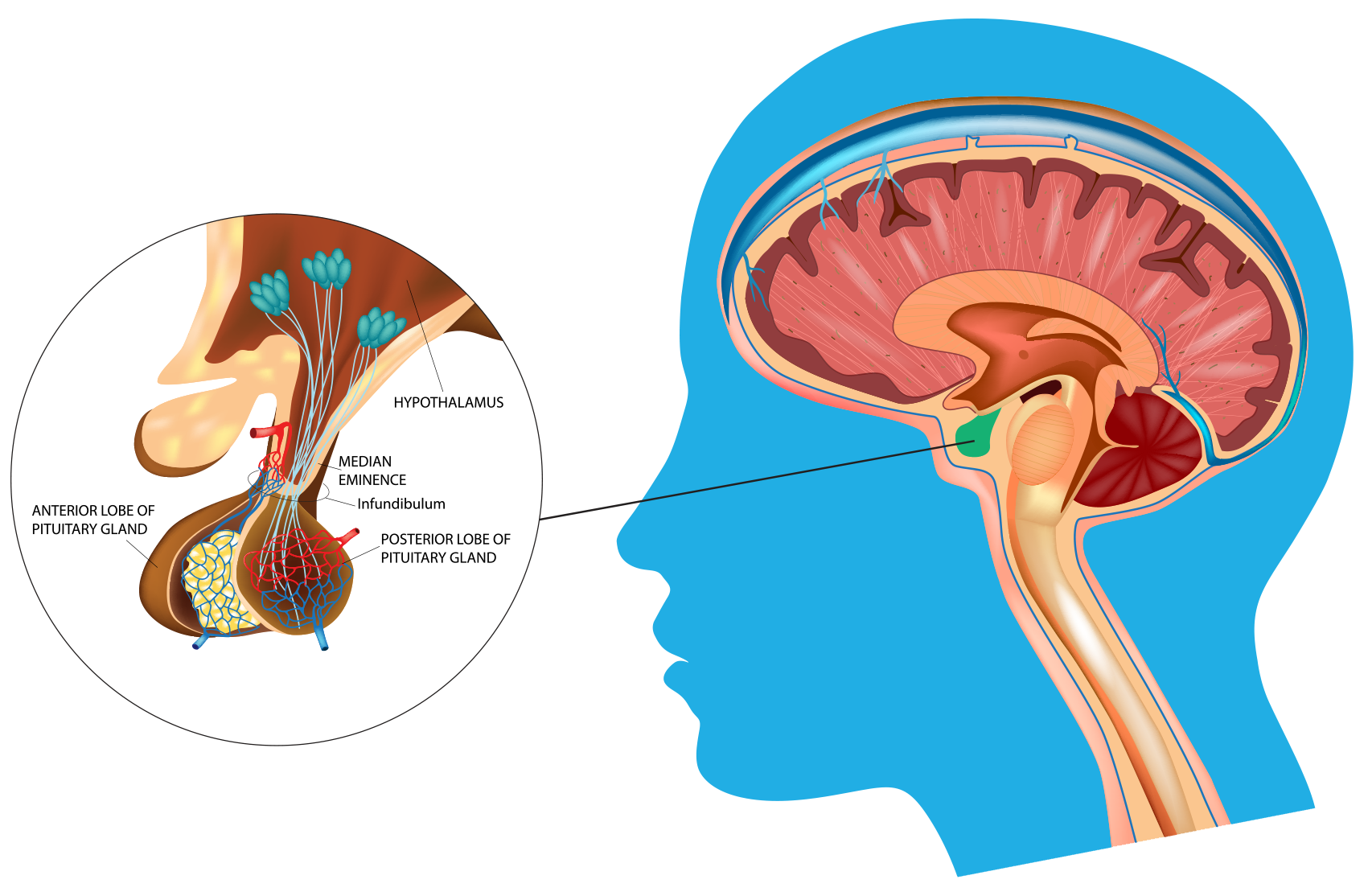The pituitary gland is a small gland found at the base of your brain. The pituitary gland produces a range of different hormones that travel throughout your body to control many functions, direct certain processes or prompt other glands to produce hormones.
What body functions are affected by pituitary disorders?
The hormones produced by the pituitary gland are:
Prolactin – regulates the production of breast milk
Growth hormones – affects growth in children and general health for adults
Fertility hormones – affect the reproductive cycle and fertility
Thyroid stimulating hormone (TSH)– sends messages to the thyroid gland to produce hormones
Adrenocorticotropic hormone (ACTH) – sends signals to the adrenal gland to produce mainly cortisol
Antidiuretic hormone – manages the fluid in your body
Oxytocin – involved in childbirth or breastfeeding
Pituitary tumours
Tumours on the pituitary gland are the most common issue with the pituitary gland. In most cases, these tumours are not cancerous. Pituitary tumours can either result in too much or too little hormone in the body, or may press on the pituitary gland or brain. Symptoms vary depending on the hormone affected but can include:
Headaches
Vision problems
Fatigue and dizziness
Dry skin
Irregular periods (for women) or low libido (for men)
Hypopituitarism
Hypopituitarism occurs when the pituitary gland is underactive, causing the hormone levels in your body to drop. Because the pituitary gland controls so many of the body’s functions, the effects of hypopituitarism can vary widely. The treatment for hypopituitarism is usually targeted hormone replacement therapy.
Hyperprolactinemia
Hyperprolactinemia occurs when there are elevated levels of a hormone called prolactin in the blood, which mainly regulates the production of breastmilk. It is commonly caused by a growth on the pituitary gland. In both men and women, the main symptoms are:
Production of breastmilk
Infertility
Decreased libido
Bone loss
As the cause of this condition can vary, treatment can range from medication to surgery and occasionally radiation.
Rare pituitary conditions
Rare pituitary conditions that affect both children and adults include:
Acromegaly – where the body produces too many growth hormones. In adults, it can cause excess sweating, enlargement of the hands, feet and jaw, or diabetes. In children, it can cause unusually quick growth and is known as gigantism.
Cushing’s syndrome – where the body produces or consumes too much of the hormone cortisol. Symptoms including weight gain, fatty tissue deposits, pink or purple stretch marks, thinning skin and slow healing of cuts, bites and infections.
As the pituitary gland is so complex, it’s important that you discuss any changes in your body with your GP and then a request a referral to an endocrinologist. Pituitary disorders can be hard to diagnose but our endocrinologists are experienced at diagnosing and treating hormone-related conditions. Most conditions that affect the pituitary gland are highly treatable.



